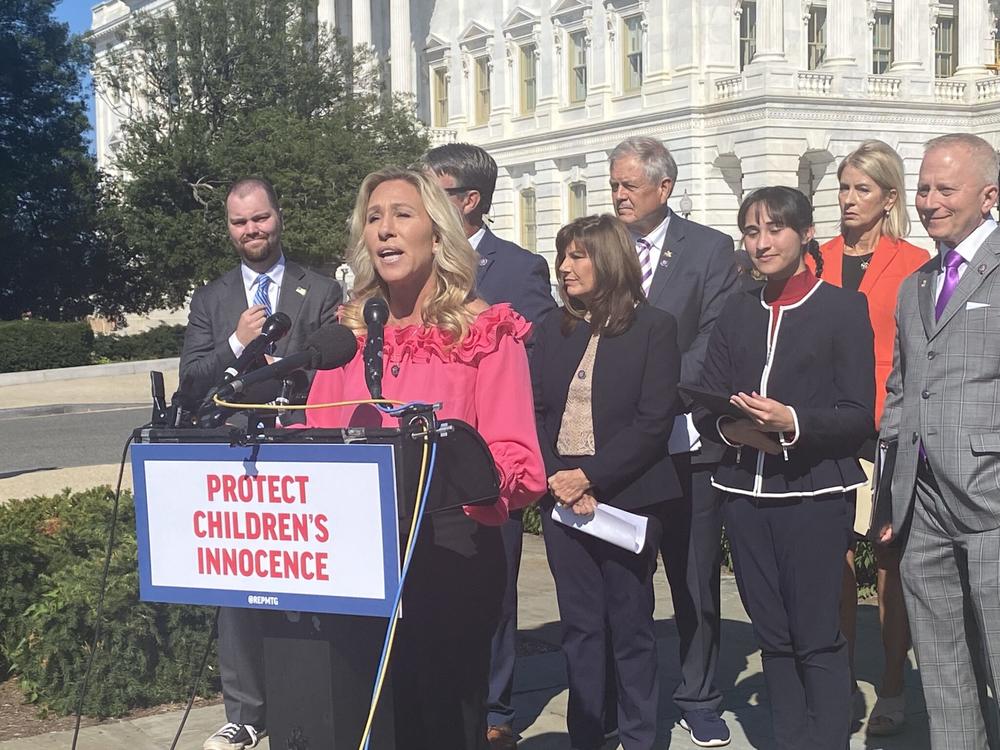
Caption
U.S. Rep. Marjorie Taylor Greene at a press conference outside the U.S. Capitol on Sept. 20 pitched her legislation to make it a felony to perform gender-affirming care on transgender youth.
Credit: Jennifer Shutt / Georgia Recorder

